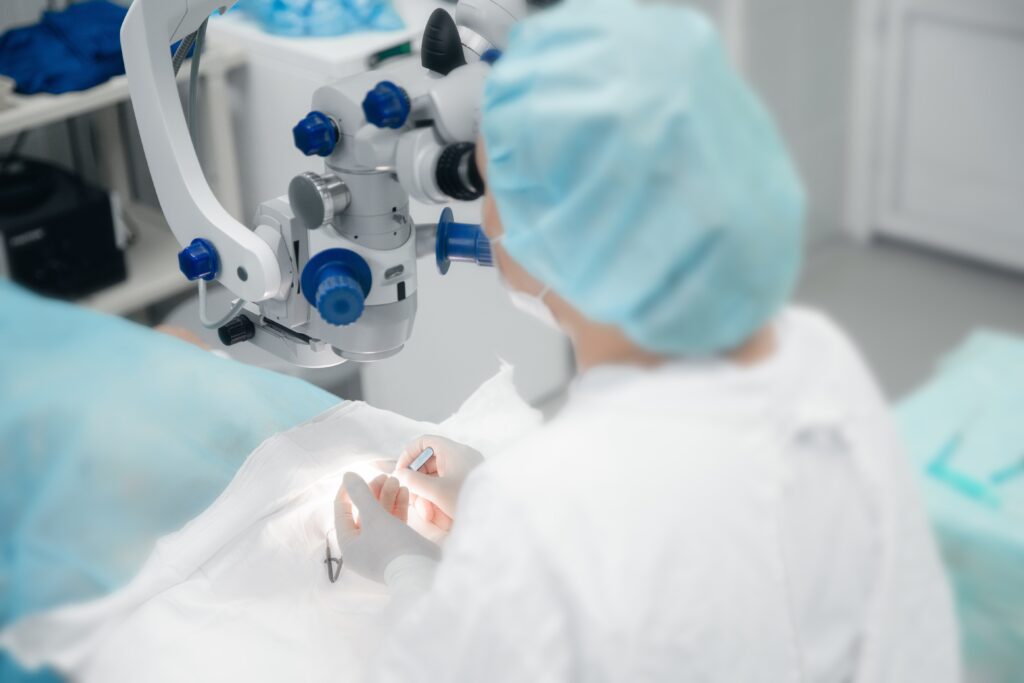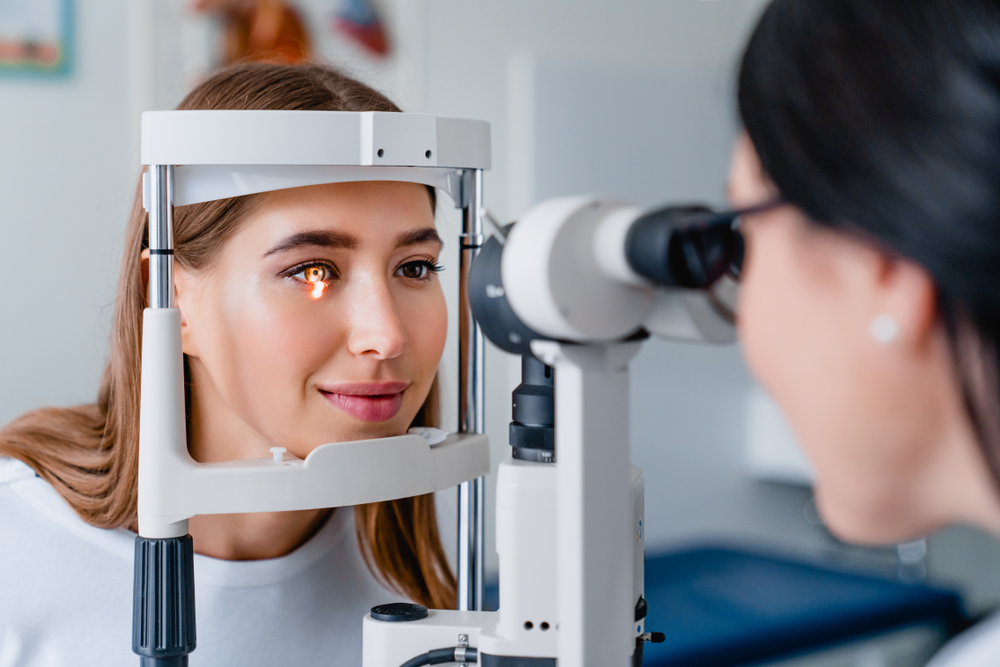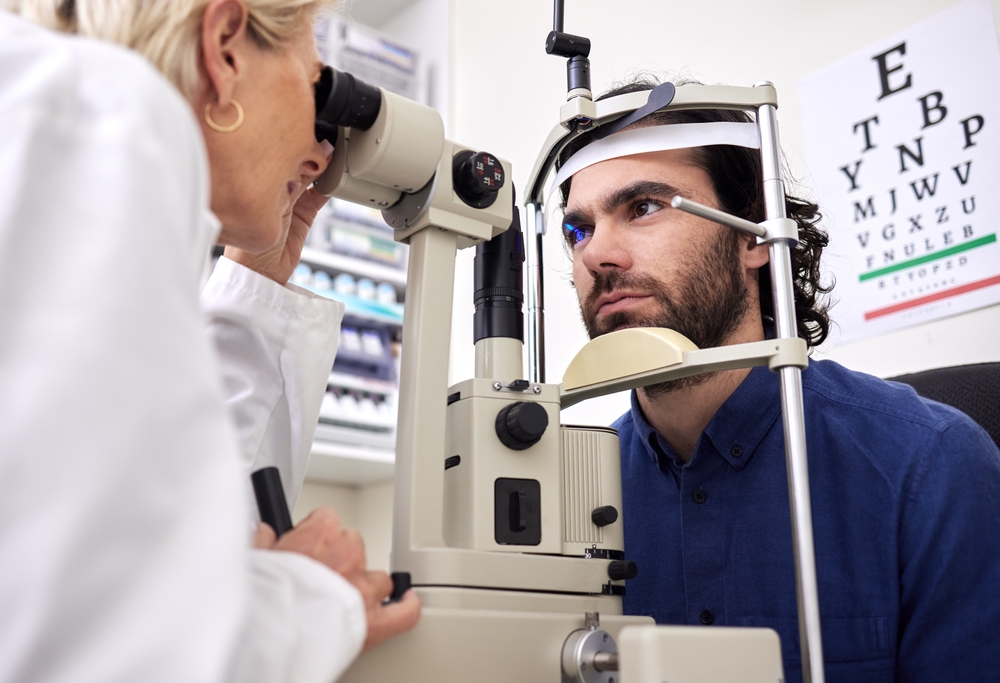Am I a Good Candidate for LASIK Eye Surgery?
Posted by: Pepose Vision Institute in LASIK on September 5, 2025

Blurry vision affects nearly every aspect of daily life, from the moment you wake up until you go to sleep. Whether you’re struggling to read road signs, squinting at your computer screen, or constantly cleaning smudged glasses, poor vision can be frustrating and limiting.
LASIK is a life-changing procedure that has helped many people achieve clearer vision, but it’s not suitable for everyone. Keep reading to learn how eye doctors determine who might be a good candidate for LASIK!
What is LASIK and How Does It Work?

LASIK is a precise surgical procedure that corrects vision problems by reshaping the cornea, which is the clear, dome-shaped front surface of your eye. Think of the cornea as a window that helps focus light into your eye.
When this “window” has an irregular shape, light doesn’t focus properly on the retina at the back of your eye, resulting in blurry vision. During LASIK, your LASIK surgeon will use advanced laser technology to create a thin flap in the cornea, then carefully reshape the underlying tissue to correct how light enters your eye.
The procedure is quick and comfortable, typically completed in a single visit using local anesthesia and mild sedation..
Who Makes a Good LASIK Candidate?
Vision Problems LASIK Can Correct
LASIK can effectively treat three common vision problems:
Nearsightedness (Myopia): If you can see objects up close clearly but struggle with distant vision, like reading road signs while driving, you may have myopia. This occurs when your cornea is too steep or your eye is too long, causing light to focus in front of the retina instead of directly on it.
Farsightedness (Hyperopia): The opposite of nearsightedness, this condition makes close-up tasks like reading difficult while distant objects remain relatively clear. It happens when your cornea is too flat or your eye is too short, causing light to focus behind the retina.
Astigmatism: This common condition occurs when your cornea has an irregular, football-like shape instead of being perfectly round like a basketball. This irregular curvature causes light to focus on multiple points, creating blurred or distorted vision at all distances.
Age Considerations
Most LASIK candidates are between 18 and 50 years old. Your vision should be stable for at least one year before surgery, which is why we typically don’t recommend LASIK for teenagers whose eyes are still developing.
As we get older, the likelihood of developing cataracts or other age-related eye conditions increases, which can impact both candidacy and long-term results. For patients over 50, other vision correction procedures may offer more effective, longer-lasting benefits.
That’s why it’s so important to start with a thorough evaluation to determine which option is truly best for your eyes and your future vision.
General Health Requirements
Good overall eye health is essential for LASIK success. We’ll examine your eyes thoroughly to ensure:
- Your corneas are thick enough for the procedure
- You don’t have signs of eye diseases like glaucoma or cataracts
- Your eyes produce adequate tears (dry eye syndrome can affect healing)
- You don’t have certain autoimmune conditions that might interfere with healing
Factors That May Affect Your Candidacy
Prescription Stability
Your glasses or contact lens prescription should remain relatively unchanged for at least 12 months before LASIK. Fluctuating vision could indicate that your eyes are still changing, which might affect your long-term results.
Corneal Thickness and Shape
Not all corneas are suitable for LASIK. We use advanced diagnostic equipment to measure your corneal thickness and map its surface. If your corneas are too thin or have irregular shapes, alternative procedures like PRK (photorefractive keratectomy) might be better options.

Lifestyle Factors
Consider your daily activities and profession. If you participate in contact sports where eye injuries are common, or if your job involves potential eye trauma, we’ll discuss these risks during your consultation. LASIK creates a permanent flap in your cornea, which could potentially be dislodged by severe impact, though this is extremely rare.
Pregnancy and Hormonal Changes
Pregnancy and breastfeeding can cause temporary vision changes due to hormonal fluctuations. We recommend waiting until after you’ve finished breastfeeding and your vision has stabilized before considering LASIK.
What to Expect During Your LASIK Consultation
The only way to definitively determine if you’re a good LASIK candidate is through a comprehensive eye examination with an experienced LASIK surgeon. At Pepose Vision Institute, we offer free consultations where your eye doctor will use state-of-the-art diagnostic equipment to help them identify even subtle vision irregularities that traditional methods might miss.
They’ll also discuss your overall health, any medications you’re taking, and your lifestyle to ensure LASIK aligns with your needs and expectations.
If LASIK isn’t right for you, we’ll explain why and discuss alternative vision correction options. These might include PRK, refractive lens exchange (RLE), or even a new glasses or contact lens prescription — depending on your specific needs.
When LASIK Might Not Be Recommended

While LASIK has an excellent safety record and high success rate, certain conditions may make you unsuitable for the procedure:
- Severely dry eyes
- Thin corneas
- Large pupils
- Certain autoimmune diseases
- Severe vision prescriptions beyond treatable ranges
- Unrealistic expectations about outcomes
Remember, being told you’re not a candidate for LASIK doesn’t mean you’re out of options. Modern vision correction offers several alternatives that might be perfect for your unique situation.
Taking the Next Step
If you’re curious about whether LASIK could change your life, the next step is simple: schedule your free consultation. During this appointment, we’ll perform comprehensive testing, answer all your questions, and provide honest recommendations about your best options.
After your consultation, you’ll have a clear understanding of whether LASIK is right for you. If you wear contact lenses, you’ll need to stop wearing them for a specific period before your examination (we’ll provide detailed instructions when you schedule).
Schedule your free LASIK consultation at Pepose Vision Institute in St. Louis, MO, today!


